Hidden Costs Of Termite Damage In Florida: How Much Will it Cost to Repair?
- March 25, 2024
- / Rocky
- / TERMITES
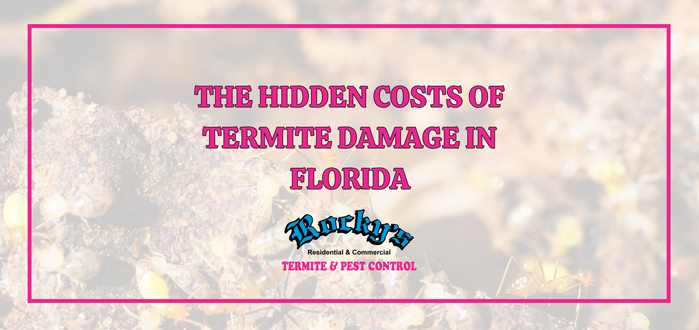
Termites may be small, but the damage they can cause to your home in Florida can be anything but. As a homeowner, it's important to know the hidden costs of termite damage and understand how much it could cost to repair. The consequences of a termite infestation can be significant, from structural damage to cosmetic repairs.
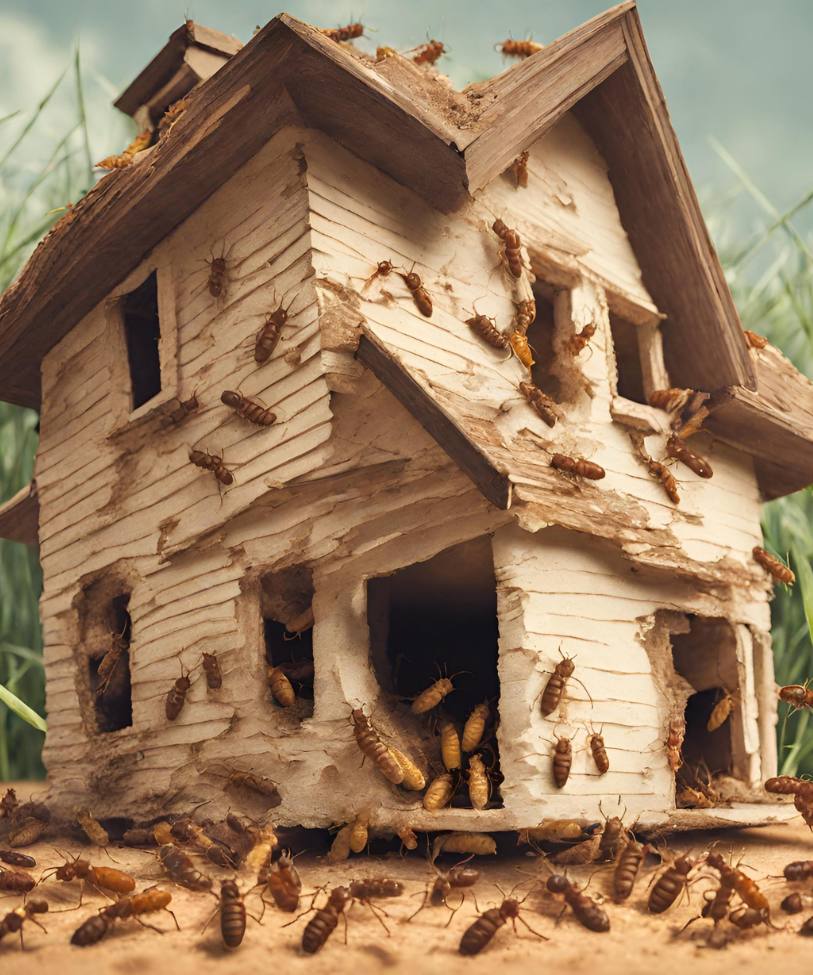
In this article, we will delve into the hidden costs of termite damage in Florida and estimate how much it may cost to repair. We'll explore the various factors that can influence the repair costs, such as the extent of the damage, the type of materials used in your home, and the complexity of the repairs needed. By understanding these factors, you can better protect your home from termites and have a clearer picture of what you might face financially if an infestation occurs.
Whether you already have termites or want to be prepared for the worst-case scenario, the information in this post will help you navigate the potential costs of termite damage in Florida and make informed decisions to protect your investment. So, let's dive in and look at the hidden costs of termite damage and how much it could cost to repair.
Understanding the hidden costs of termite damage
Termites are silent destroyers. They can invade your home and cause extensive damage without you even realizing it. By the time you notice the signs of termite damage, the infestation may have been going on for months or even years. This means the repairs needed to fix the damage can be extensive and costly.
One of the hidden costs of termite damage is the structural damage that can occur. Termites can eat away at the wooden structures of your home, compromising its stability. This can lead to sagging floors, leaning walls, and even the collapse of parts of your home. Fixing the structural damage caused by termites can be a complex and expensive process, requiring the expertise of professionals.
In addition to the structural damage, termite infestations can lead to cosmetic repairs. Termites can leave behind unsightly holes and tunnels in walls, ceilings, and floors. Repairing these cosmetic damages can be time-consuming and costly, especially if the affected areas are large or in hard-to-reach places.
Another hidden cost of termite damage is the potential damage to your belongings. Termites can chew through furniture, books, and even clothing. Replacing these items can add up quickly, especially if you have valuable or sentimental possessions that are irreplaceable.
Signs of termite damage in your home
Detecting termite damage early on is crucial to minimizing the costs of repairs. Here are some common signs that may indicate a termite infestation in your home:
1. Mud tubes: Termites build mud tubes to protect themselves as they travel between their nest and food source. These tubes are often found along the foundations of your home or in crawl spaces.
2. Swarmers: Termite swarmers are winged termites that emerge from the colony to mate and start new colonies. If you notice discarded wings or swarmers flying around your home, it could signify a nearby termite infestation.
3. Wood damage: Check for hollow-sounding wood or wood that sounds hollow when tapped. Termites eat wood from the inside out, leaving a thin layer of painted or sealed wood on the surface.
4. Sagging floors or ceilings: If your floors or ceilings are sagging or uneven, it could be a sign of termite damage. Termites can weaken the wooden structures, causing them to lose their strength and stability.
5. Piles of discarded wings: After a termite swarm, you may find piles near windows, doors, or light fixtures. This is a clear indication that termites have been present in your home.
If you notice any of these signs, it's important to immediately contact us at (850) 380-5408 for a thorough inspection.
Factors that affect the cost of termite damage repair

The cost of termite damage repair can vary depending on several factors. Understanding these factors can help you estimate how much it may cost to repair termite damage in your home.
1. Extent of the damage: The severity of the termite damage will directly impact the cost of repairs. If the infestation is caught early and the damage is minimal, the repairs may be relatively straightforward and less costly. However, if the infestation has been ongoing for a long time and the damage is extensive, the repairs will likely be more complex and expensive.
2. Type of materials used in your home: The type of materials used in your home can also affect the cost of repairs. For example, if your home has many wooden structures, the repairs may be more expensive than those of a house with primarily concrete or steel structures. Additionally, the quality of the materials used can also impact the cost of repairs.
3. Complexity of the repairs needed: Some termite damage repairs may be more complex than others. For example, if the termites have damaged your home's foundation, the repairs may require excavation and additional structural support. These types of repairs can be more time-consuming and costly.
4. Location of the damage: The location of the termite damage can also affect the cost of repairs. If the damage is in an easily accessible area, the repairs may be less expensive than damage in hard-to-reach or hidden places.
It's important to remember that these factors can interact, and the final cost of repairs will depend on the specific circumstances of your termite infestation.
Insurance coverage for termite damage
Homeowners' insurance typically does not cover termite damage. Most insurance policies consider termite infestations and the damage-preventable issues the homeowner must address and maintain. Insurance companies view termite damage as a maintenance issue rather than an unforeseen event.However, reviewing your insurance policy to understand the specific coverage and exclusions is always a good idea. Insurance policies may cover secondary damages caused by termites, such as water damage from a termite-damaged pipe. Consulting with your insurance provider can help you determine the extent of coverage available.
Preventing future termite damage
Prevention is key when protecting your home from termites and avoiding costly repairs. Here are some tips to help prevent future termite damage:1. Remove wood-to-soil contact: Termites thrive in moist environments, so it's important to eliminate any direct contact between wood and soil. Ensure that the soil around your home's foundation is properly graded and that no wooden structures are in direct contact with the ground.
2. Keep your home well-ventilated: Proper ventilation can help reduce moisture levels, making it less attractive to termites. Ensure that your attic, crawl spaces, and basements are adequately ventilated.
3. Address moisture issues: Fix any leaks or moisture issues in your home promptly. Termites are attracted to moisture, so keeping your home dry and moisture-free is essential in termite prevention.
4. Regularly inspect and maintain your home: Conduct regular inspections for any signs of termite activity or damage. Look for mud tubes, discarded wings, or any wood damage. If you notice any issues, consult with a professional pest control company.
5. Enroll in professional termite treatments: Professional termite treatments can protect your home from invading termites and provide peace of mind. Call us today if your home has not been treated for termites, and we can schedule an inspection of your home and property. We have installed over 10,000 termite protection systems, so we know what it takes to ensure termites are not keeping you up at night. You can schedule an inspection appointment online HERE or call (850) 380-5408.
By implementing these preventive measures, you can reduce the risk of termite infestations and save yourself from costly repairs in the future.
The importance of regular termite inspections
Regular termite inspections are vital in catching termite infestations early on and minimizing damage and repair costs. A termite inspection by one of our trained technicians can identify signs of termite activity that may go unnoticed by an untrained eye, and we can install treatment options such as the Sentricon Termite Colony Elimination Systems to protect your home.
It's recommended that a professional termite inspection be performed at least once a year. However, more frequent inspections may be necessary depending on your location and the history of termite activity in your area. Regular termite inspections can save you money in the long run by preventing extensive damage and costly repairs.
Conclusion: Investing in termite damage repair is crucial for the long-term health of your home
Termite damage can have significant financial implications for homeowners in Florida. Understanding the hidden costs associated with termite damage and being proactive in prevention and early detection can help minimize the financial burden.
Remember to inspect your home for signs of termite activity, such as mud tubes, discarded wings, or wood damage. If you suspect a termite infestation, immediately contact a professional pest control company for a thorough inspection.
Investing in regular termite inspections and implementing preventive measures can protect your home and save you from expensive repairs. While the cost of termite damage repair can vary depending on factors such as the extent of the damage and the type of materials used in your home, it's important to prioritize your home's long-term health and promptly address termite infestations. By taking proactive measures and working with professionals, you can protect your investment and ensure the safety and integrity of your home for years to come.
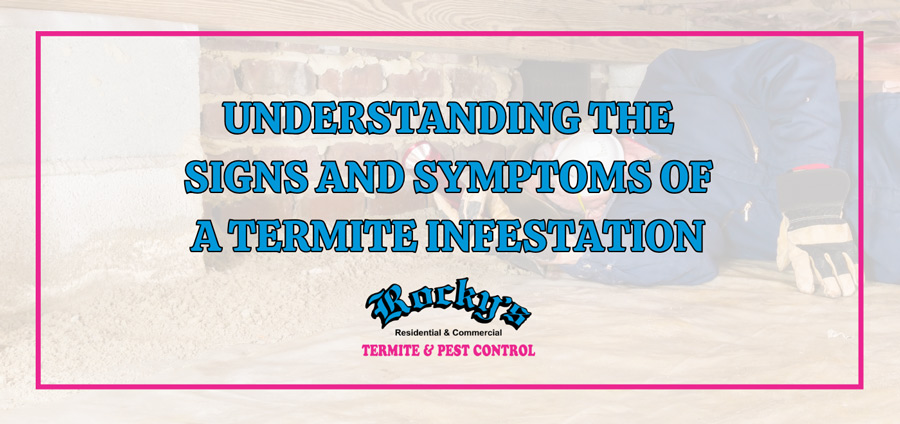 Termite Troubles: Understanding the Signs and Symptoms of an Infestation
Termite Troubles: Understanding the Signs and Symptoms of an Infestation
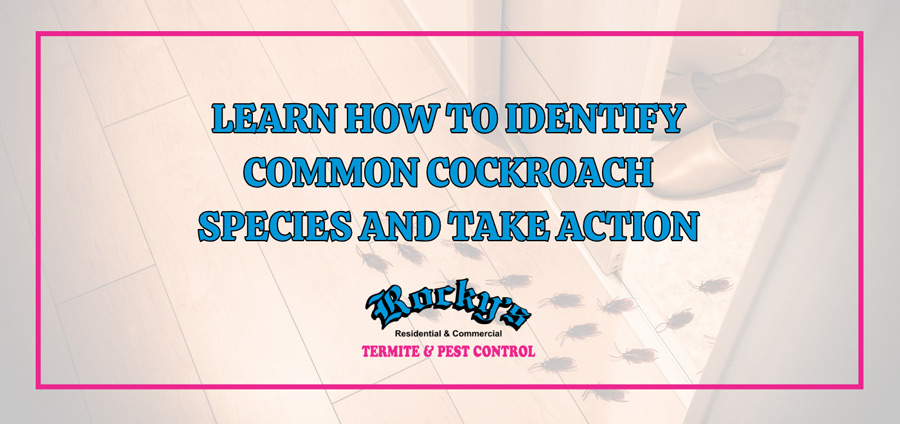 Cockroach Identification 101: Learn How to Identify Common Cockroach Species and Take Action
Cockroach Identification 101: Learn How to Identify Common Cockroach Species and Take Action
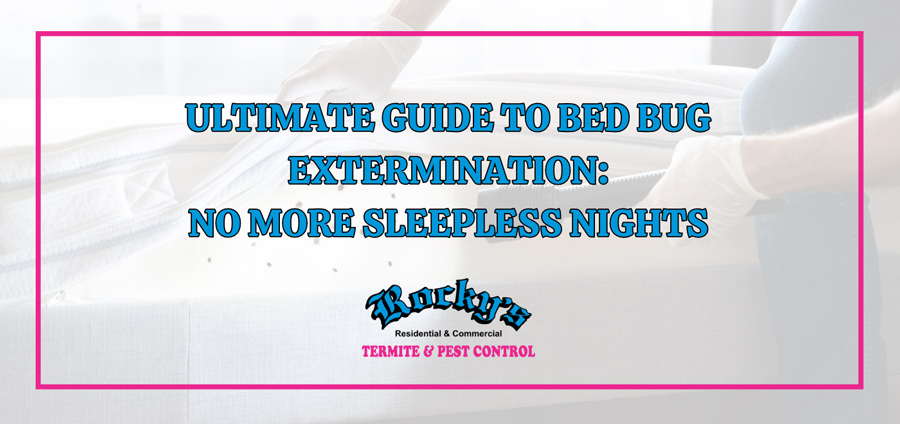 The Ultimate Guide to Bed Bug Extermination: Say Goodbye to Sleepless Nights!
The Ultimate Guide to Bed Bug Extermination: Say Goodbye to Sleepless Nights!
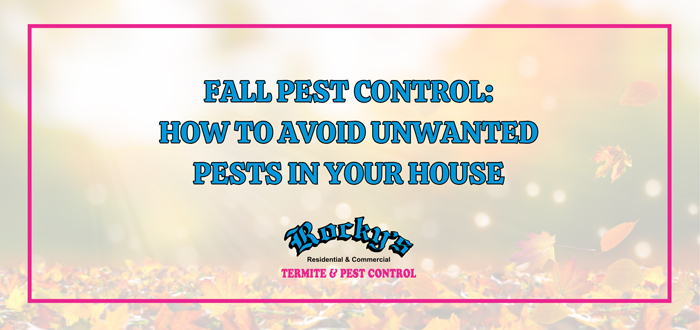 Fall Pest Control: How To Avoid Unwanted Pests In Your Home
Fall Pest Control: How To Avoid Unwanted Pests In Your Home